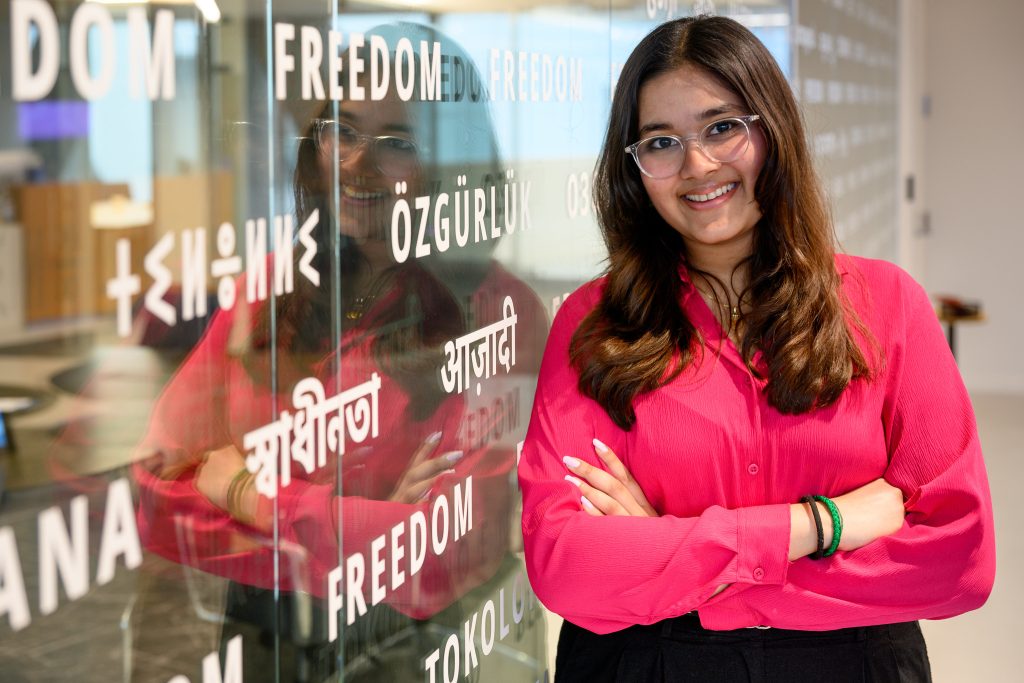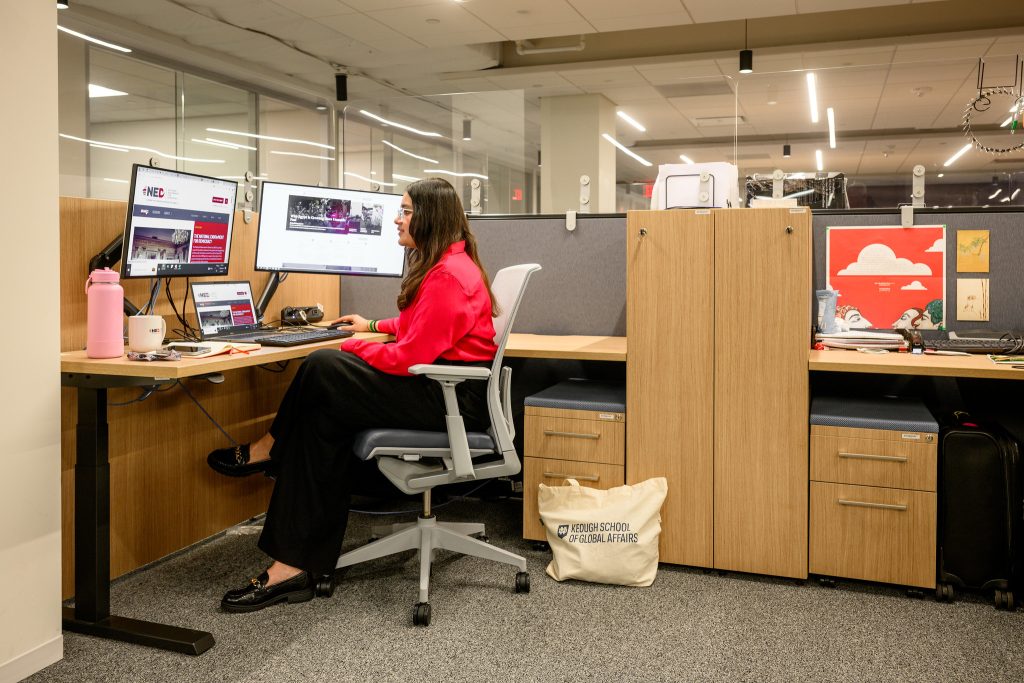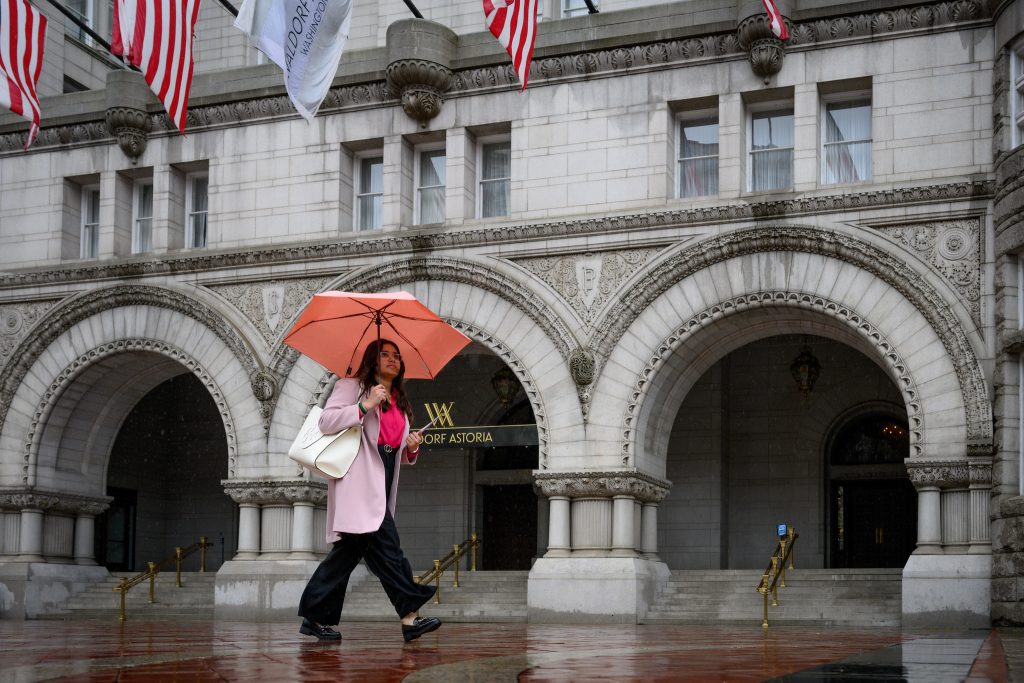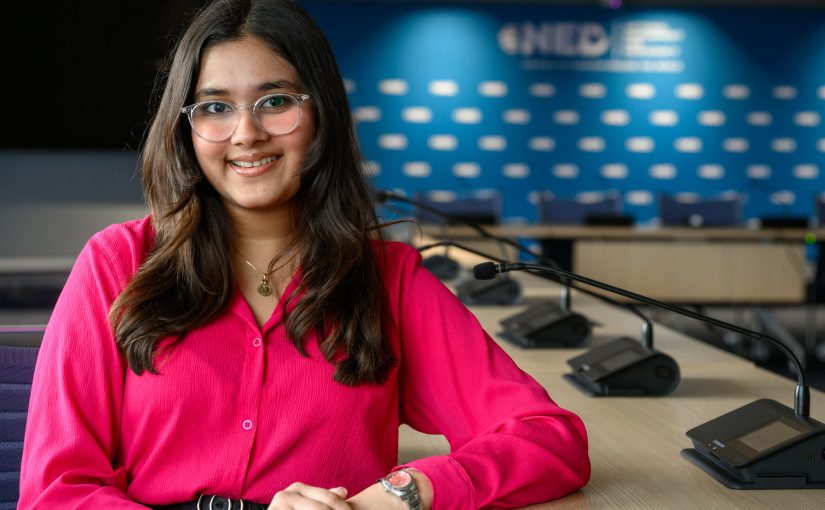By Tia Mittle
As I pulled open the heavy glass doors, a rush of air met my face, carrying with it the faint scent of freshly brewed coffee and the subtle hum of movement. The grand lobby expanded before me with soaring ceilings that stretched upward, echoing the ambition and scale of the work being done within. I felt an immediate sense of purpose. In this building was the National Endowment for Democracy, my office for the semester, and as I would soon learn, my inspiration for the future.
The National Endowment for Democracy (NED) is a private, bipartisan, nonprofit, grant-making foundation that is funded by Congress and dedicated to the growth and strengthening of democratic institutions around the world. Annually, NED makes more than 2,000 grants to support projects proposed by non-governmental groups abroad who are working for democratic goals in more than 100 countries. This semester, I had the privilege of interning for the government relations team at the NED.

Coming from India, the largest democracy in the world, the values and importance of a democratic government were embedded in my worldview at a very young age. Questioning the unequal access to rights not just in India, but around the world, I was motivated to use my platform to advance human dignity and the ideals of democracy. When I decided I would attend the University of Notre Dame, I was certain I would participate in the Washington Program, live in Washington, D.C., and spend my time interning for an organization that promoted democracy worldwide.
As the government relations intern, I spent my time attending meetings on Capitol Hill with congressional staff and grantees from abroad, researching and writing weekly government relations updates featuring current events from the executive and legislative branch, conducting background research for Hill meetings, and engaging with the success stories that clearly indicated the impact NED has in championing human rights and defending democracy. Undoubtedly, the Keough School’s diverse classes rooted in the ideals of integral human development, opportunities for cultural immersions, and open-minded professors had prepared me for the work I embarked on this semester.

Every five-months, NED hosts democracy activists and journalists from all over the globe through its Reagan-Fascell fellowship. I was lucky to attend some of their presentations! Listening to the rap music produced by one such fellow, Martial Pa’nucci from the Republic of Congo, reinvigorated my passion and commitment to advocate for democracy. I had never imagined that rap could be such a powerful form of expression in advocating for democracy, but Martial’s performance of his “Lettre ouverte aux présidents d’Afrique” (Open letter to the presidents of Africa) reminded me of how personal this struggle for democracy is to so many individuals. When I was younger, I always questioned how I could make an impact at the individual level to support democratic ideals. I have now learned that the fight for democracy manifests differently across various contexts, and the gaps in accomplishing it are unique to each nation. Regardless, an art form that is often viewed as simply a “passion” can convey an incredibly strong message about needed reform.

Lying on my D.C. apartment’s coffee table are books such as “Mapping the Killings under Kim Jong-un,” given to me by grantees who are supported by the NED. My internship has enabled me to delve deeper into the realistic state of democracy worldwide. In my first two weeks at the NED, I had already attended meetings on the Hill that gave a voice to grantees from the Sahel, Serbia, and North Korea – stories from all different continents – to make Congress members aware of the devastating impacts that authoritarian regimes have in their countries, harming not only their own citizens, but the rest of the world. As I sat and took notes at these meetings, I was captivated by the voice of grantees, some who spoke in their own language, passionately representing the hardships their nation faces because of malign authoritarian influence, and sharing the courageous and groundbreaking efforts they undertake, often at great risk to themselves and their communities, to work toward a democratic future.
As I reflect back on my semester, I find it crucial to mention the fundamental role that classes at the Keough School’s Washington Office played in broadening my perspective of American politics and foreign policy. During the semester, I had the opportunity to dive into the complexities of democracy by listening to and engaging with peers holding diverse opinions about democracy.
My semester working for the NED has forced me to reflect on the state of democracy across the globe, which didn’t feel as blatantly horrifying until I observed the dauntless expressions and heard the first-hand experiences of grantees who were actively and bravely fighting authoritarian influence. This experience will shape my capstone project and future career path, as I outline my personal mission to uphold democratic values, even in the face of adversity. I’m grateful to the NED and the Keough School for supporting me.
Tia Mittle ’26 is a global affairs and political science major from Mumbai. Photos by Matt Cashore

